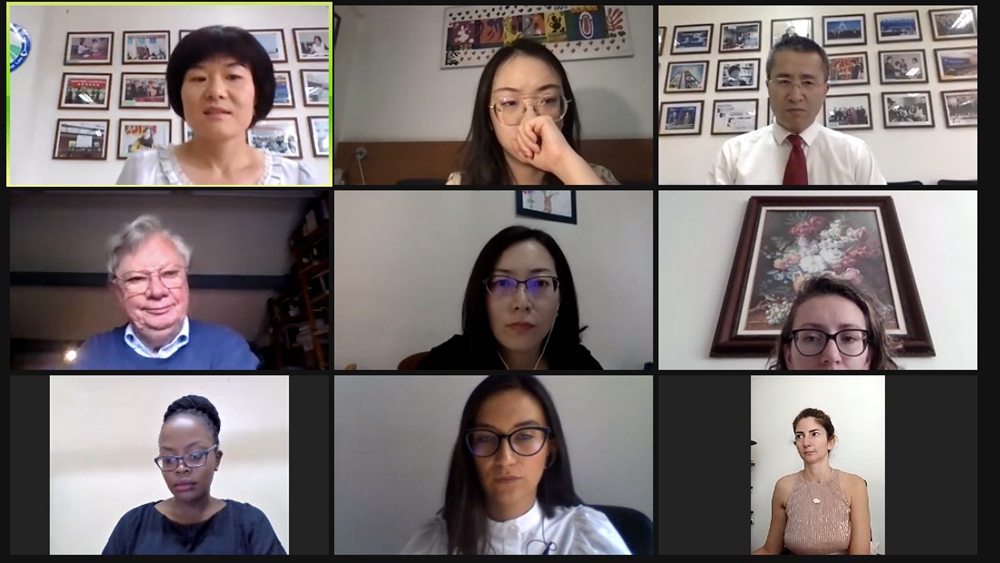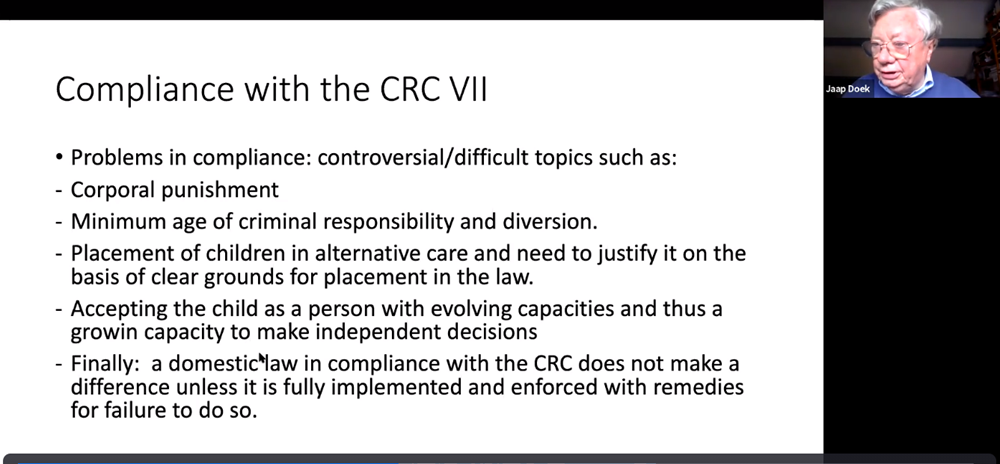
Screenshot of the online event on children's rights protection in progress. /CGTN
Screenshot of the online event on children's rights protection in progress. /CGTN
Protection of children's rights and proper handling of Japan's Fukushima wastewater were the topics for experts' discussion at parallel events to the 47th session of United Nations (UN) Human Rights Council, which concluded on Wednesday.
On children's rights protection
Legal professionals and children's rights activists called on states around the world to improve national legislation and regulation on the rights of the child on Thursday, to better implement the UN Convention on the Rights of the Child.
The calls were made at a parallel event to the UN session held in Beijing, at which the issue of better safeguarding children's rights in different countries was discussed.
The UN Convention on the Rights of the Child was adopted in 1989 to promote children's human rights. It is the first legally binding international instrument to incorporate the full range of human rights, including civil, cultural, economic, political and social rights.
Tong Lihua, the director of Beijing Children's Legal Aid and Research Center, pointed out that China's amendment of the Law on the Protection of Minors last year effectively implements the requirements of the Convention on the Rights of the Child to States Parties and will improve the level of protection of minors in China in an all-around way.

Screenshot of Jaap Doek speaking during the event. /CGTN
Screenshot of Jaap Doek speaking during the event. /CGTN
"The newly added chapters in 'governmental protection' and 'internet protection' emphasize the government's special responsibility for the protection of minors and provide solutions to deal with new problems brought about by the rapid development of the internet, including cyberbullying, internet addiction, internet privacy, and the protection of personal information and so on," Tong said.
Jaap Doek, former chairperson of the UN Committee on the Rights of the Child and a senior expert in the field of child law, said that since the Convention on the Rights of the Child is composed of 41 articles, to incorporate all conventions is a huge undertaking. Thus, his recommendation was to take it piece by piece, based on the different priorities of each nation, like China's revision of China's Law on the Protection of Minors.
"Constitutionalization of children's rights is an effective measure," said Doek, adding that, "constitutionalization could make the legislators more thoroughly assess the right of the child when drafting new laws, and courts and other decision-makers would more likely interpret the law in light of Constitutional provisions and enforce them."
Doek also stressed a comprehensive review of all domestic legislation to ensure full compliance with the Convention on the Rights of the Child is a state's obligation.
Childhood is a special, protected time, in which children must be allowed to grow, learn, play, develop and flourish with dignity, according to the UN Convention, which went on to become the most widely ratified human rights treaty in history and has helped transform children's lives.
00:48

Scrapping of nuclear contaminated water release plans urged
Nuclear and environmental experts called on the Japanese authorities to give up a plans to dump nuclear contaminated water into the ocean, at a parallel event for the 47th session of the UN Human Rights Council which was hosted by All-China Environment Federation on Tuesday.
Japan decided earlier this year to discharge Fukushima nuclear contaminated water into the Pacific Ocean over a 30-year period, possibly starting from 2023. It claims that the water will be "harmless" after processing.
Shahriar Hossain, an environmental expert from International Pollutants Elimination Network, worried that dumping contaminated water into the ocean could even create an oxygen shortage eventually.
"Seventy percent of oxygen is coming from the seas," said Hossain, "and if the ocean is contaminated and the marine plants did not survive, they cannot produce oxygen. Then there will be a huge shortage of oxygen coming from the sea."
Environmental NGOs from Japan, South Korea, Pakistan and China called for a more environmentally responsible solution by Japan, instead of jeopardizing public health and global environment.
Xie Yuhong, the secretary general at All-China Environment Federation, said: "We hope that the Japanese government will give up its plans to discharge the water, and take a responsible attitude to its people and the international community, by carefully adopting the best and safest technology to deal with the nuclear contaminated water."

